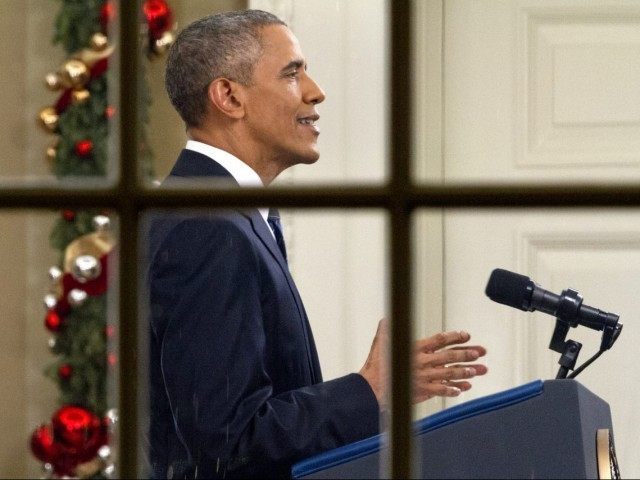President Obama’s address to the nation after the massacre in San Bernardino California was not particularly revelatory or comforting. Now more than ever, Americans want to hear that we are safe and protected. It remains unclear if anything has or will be done to make us feel safe again.
The President outlined some of the efforts underway that have been tried to contain and combat the Islamic State terrorist organization (ISIS). Most of these efforts have been ongoing in drips and drabs, and not yielding the necessary and needed results. ISIS has grown in size and reach hitting a wide range of targets, from the Middle East to Europe to America. As we are seeing more often recently, ISIS has caused gruesome carnage, incomprehensible deaths, and widespread anxiety and fear. Efficiently and systematically, ISIS has delivered on dispensing the terror it promised on innocent civilians from Baghdad to California.
The President spoke of the formation of a coalition of countries joining the efforts to destroy ISIS, a list that is growing and gaining momentum. But as he enumerated the countries in this fight, there was no mention of Arab countries in the region that must be engaged and included.
ISIS is first and foremost a localized regional problem wrecking havoc on local Arabs and Muslims within its grip on a daily basis. ISIS grew out of the instabilities and deficiencies in the Middle East and will only be defeated if those same instabilities and deficiencies are addressed. Arab countries from the region need to be an integral and important part of any effort to rid the world of these terrorists, which will require more than just military intervention.
The neighboring countries that support ISIS’s financial dealings must join the coalition, as do the countries that support the ideology that ISIS uses for recruitment and allegiance. As part of the larger coalition, these countries have to denounce ISIS in all ways, including a concentrated and full campaign by the highest Sunni and Shia clergy shunning this fanatical and scary version of Islam. While ISIS publicly continues to barbarically behead minorities, women, and non-adherents, the voices of these religious leaders need to unite and resonate with the same message, a message loud enough for us to hear here on this side of the world.
One of the worst offenders in the region and a country that the U.S. needs to sway is Saudi Arabia, which not only reportedly sends the most donations to Sunni terrorist groups, but has over the past decades spent billions of dollars propagating the Wahhabi version of Islam, a version that wipes out the pluralism of the religion and instead pushes for the anti-Western, anti-modern, anti-women brand of Islam promoted by the Saudi religious establishment. This Islam goes after moderate Sunni Muslims, Shia Muslims, and everyone else.
Saudi Arabia and the rest of the Gulf countries have closed their borders to these dangerous influences, yet keep funding an ideology that gives birth to many of these recruits and sympathizers. As long as it doesn’t happen in their backyard, they are fine to have their citizens line up to join the ranks, whether in Syria or Iraq. They wait for the U.S. and other Western countries to intervene as they critique and condemn foreign involvement on Arab Muslim lands.
The US can’t get bogged down in another costly long war. We’ve already done that. When the GOP candidates speak of “carpet bombing” ISIS—that can’t be the answer. That has been tried before and failed because the US bailed out too early, leaving the vacuum that created ISIS in the first place. The U.S. can and should continue military attacks in coordination with other countries, but can take an active and leading role in forming and uniting the best coalition to go after this problem holistically. Without that, foreign military intervention will remain only a partial solution.
Nadia Al Sultani, an international development professional and former USAID advisor to Iraq, is the author of Baghdad Stories: An Iraqi-American Memoir. Al Sultani, an Iraqi-American, holds an MA in International Economics and spent several years working in international banking on Wall Street before beginning her career in public service.

COMMENTS
Please let us know if you're having issues with commenting.